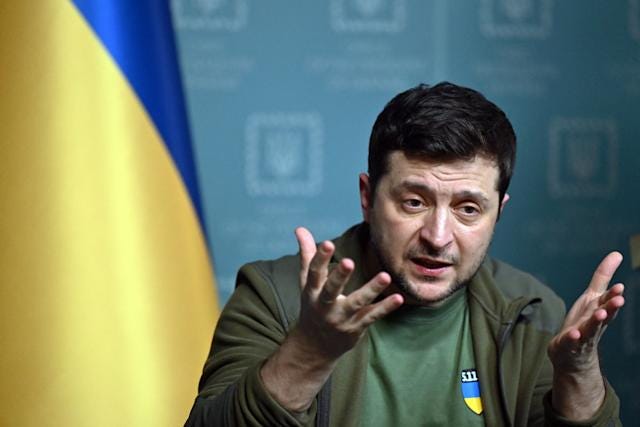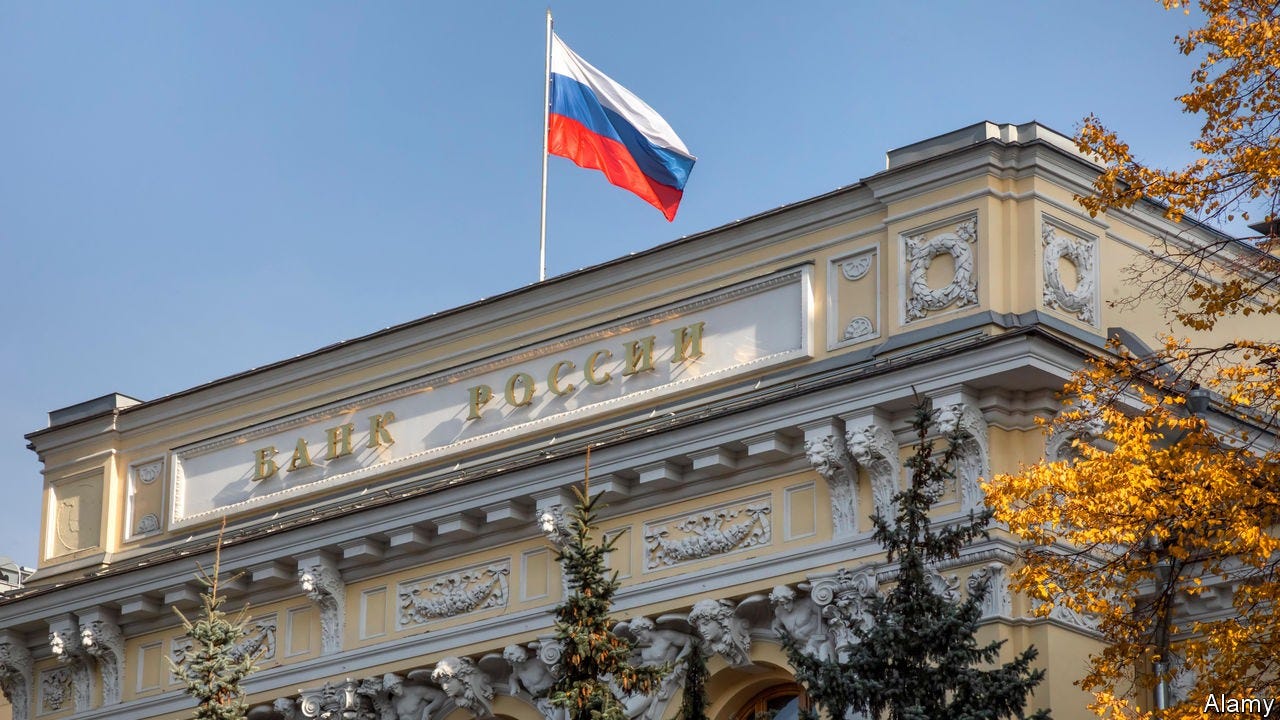Ukraine #3: A Catalyst for Change
As war rages, Western reaction and Russian economics remain the key aspects of the Ukrainian war
As Russia advances (slowly) in Ukraine, The Political Inquiry will be exploring the shift in Western reaction and the state of the Russian economy as it conducts the most aggressive war in Europe since 1945.
Western Change
The Western reaction has been strong considering the weak position it started from. Eleven days ago, Hungary, Italy and Germany remained against sanctions and/ or military aid — all three were somewhat aligned with Russia. Within days of the Russian invasion, all three voted Russia out of SWIFT, Germany tripled its defence budget overnight ($150 bn), and the West has continued to ostracise Russia out of all cultural and international events / organisations.
The West has persistently supplied arms to Ukraine, and has landed a strong rhetoric — which has been absent for three decades. But due to Zelensky’s leadership, has the West been guilt-tripped into a position it was unlikely to take? In terms of the breadth economic sanctions and global reaction, certainly. Long term consequences of holding such sanctions, as well as Ukraine’s destroyed economy, will hit Europe hard. It may yet regret such actions. But regardless of how Europe got here, it’s stand is now unequivocal against Russia.
However, one of the last key hurdles is gas sanctions. Rory Stewart has correctly, and consistently, argued for the West to stop using any Russian gas, and instead convert to the more expensive liquid gas1. This is a difficult transition considering Italy relies on Russian gas for 40% of its energy, and the logistical issues of liquid gas transportation. However, it is, arguably, the last external economic sanction the West can hit Russia with, short of physical trade blockades (arguably an act of war).
The Big Question: The Russian Economy
Eleven days ago the Inquiry stated that there was no hope for Ukraine. While Ukrainian resistance has been fierce, the Inquiry stands by this opinion with only one caveat: The Russian economy. Popular opinion and morale are near impossible to quantify due to censorship in Russia. Economics, however, is much more illuminating when measuring an autocratic state’s stability and success; especially when considering its ability to conduct aggressive warfare.
European sanctions have been fast, targeted and impressive considering the West’s weak position. Oligarch targeting is useful, considering 500 elites own 99.8% of the wealth in Russia (Most connected with Putin)2. While Oligarch targeting has not yet been expansive enough, the current list will certainly pressure Putin’s domestic position. Much more must be done in cities such as London. However, it’s difficult to ascertain how this will have any real impact on Russia’s economy.
Similarly, Russia’s ejection from SWIFT and the ‘nuclear’ sanctioning of Russian banks will also hurt their global financial situation. SWIFT ejection makes serious global finance almost impossible for Russia. By sanctioning the Central Bank and freezing Russia’s $630 Billion in foreign currency3, the West has successfully reduced Russia’s options in steadying its economy.
The Ruble (Russia’s currency) also stands at 0.0096 USD, quite catastrophic for an international power.
But it is too early to tell whether these sanctions will achieve their real purpose: to crash the Russian economy. This would bring an end to the Ukrainian war — either through Putin’s forced surrender or an internal coup to position someone who would surrender.
By shutting off all external economic avenues, the West has done almost all it can, short of the real ‘nuclear’ option of sanctions on gas — something the West still can’t agree on. It’s an open question if this could tilt Russia’s economy over the edge. But while Russia relies on a trade surplus, it has also been a fiscally conservative nation since it’s 1998 economic crash.
Russia has run a budget surplus for decades (taking money out, rather than putting it into the economy), allowing room for nationally financed debt in crisis. As Adam Tooze insightfully argues, the Western sanctions may fail if Russia shifts from a “deflationary conservative” state to a policy of “Keynesian stimulus”4. In short, if Russia starts to invest seriously on a domestic level, external sanctions (short of gas) could be meaningless.
The Russian Central Bank may have started down this route by attempting to aggressively shore up the Ruble. Raising interest rates to 20%, nationalising major exporters and requiring all companies to convert 80% of its Dollars into the Ruble is a start. Maintaining currency sovereignty is key to Russian economic independence. Could we start to see a return to a large state-economy in Russia, as seen under the USSR? Without large economic intervention, Russia’s economy may collapse. A possible Chinese loan may negate this requirement, but this option has yet to appear.
Short of an unlikely coup, only a collapse of the Russian economy can save Zelensky and the Ukrainian people.
Overall, The Political Inquiry would not underestimate Putin’s, the ex-KGB officer, desire to uphold the Russian currency and economy (and his power) at any cost, which is why Ukraine’s position is so dire.
Episode 1: https://uk-podcasts.co.uk/podcast/the-rest-is-politics
https://www.themoscowtimes.com/2021/06/10/russias-500-super-rich-wealthier-than-poorest-998-report-a74180
https://ridl.io/en/the-false-strength-of-russia-s-currency-reserves/








I wholeheartedly agree with your astute thoughts on where things lie. Putin really will sit open at nothing. It is a travesty but all the sanctions in the world won’t trouble a sociopathic dictator. Cx only someone in Russia could overturn the course of events. One can always hope!